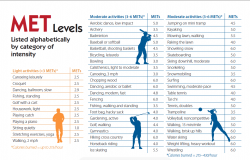Type 2 Diabetes
Noninsulin-dependent diabetes mellitus (type 2 diabetes) is the most common type of diabetes in the United States. Type 2 diabetes reduces your body’s ability to control your blood sugar. It is a major cause of early death, heart disease, kidney disease, stroke, and blindness. Over people are twice as likely to develop type 2 diabetes as people who are not over. You can reduce your risk of developing this type of diabetes by losing and by increasing your physical activity.
Controlling Diabetes with Weight Loss
If you have type 2 diabetes, losing and becoming more physically active can help control your blood sugar levels. If you use medicine to control your blood sugar, loss and physical activity may make it possible for your doctor to decrease the amount of medication you need.
Cancer
Several types of cancer are associated with being over. In women, these include cancer of the uterus, gallbladder, cervix, ovary, breast, and colon. Over men are at greater risk for developing cancer of the colon, rectum, and prostate. For some types of cancer, such as colon or breast, it is not clear whether the increased risk is due to the extra or to a high-fat and high-calorie diet.
Sleep Apnea
Sleep apnea is a serious condition that is closely associated with being over. Sleep apnea can cause a person to stop breathing for short periods during sleep and to snore heavily. Sleep apnea may cause daytime sleepiness and even heart failure. The risk for sleep apnea increases with higher body weights. Weight loss usually improves sleep apnea.
Controlling Diabetes with Weight Loss
If you have type 2 diabetes, losing and becoming more physically active can help control your blood sugar levels. If you use medicine to control your blood sugar, loss and physical activity may make it possible for your doctor to decrease the amount of medication you need.
Osteoarthritis
Osteoarthritis is a common joint disorder that most often affects the joints in your knees, hips, and lower back. Extra appears to increase the risk of osteoarthritis by placing extra pressure on these joints and wearing away the cartilage (tissue that cushions the joints) that normally protects them. Weight loss can decrease stress on the knees, hips, and lower back and may improve the symptoms of osteoarthritis.
Gout
Gout is a joint disease caused by high levels of uric acid in the blood. Uric acid sometimes forms into solid stone or crystal masses that become deposited in the joints. Gout is more common in over people and the risk of developing the disorder increases with higher body weights.
Gout notes:
Over the short term, some diets may lead to an attack of gout in people who have high levels of uric acid or who have had gout before. If you have a history of gout, check with your doctor or other health professional before trying to lose weight.
Gallbladder Disease
Gallbladder disease and gallstones are more common if you are over. Your risk of disease increases as your increases. It is not clear how being over may cause gallbladder disease.
Not Too Fast
Weight loss itself, particularly rapid loss or loss of a large amount of , can actually increase your chances of developing gallstones. Modest, slow loss of about 1 pound a week is less likely to cause gallstones.
Slow and Steady
Slow and steady loss of no more than 1 pound per week is the safest way to lose weight. Very rapid loss can cause you to lose muscle rather than fat. It also increases your chances of developing other problems, such as gallstones, gout, and nutrient deficiencies. Making long-term changes in your eating and physical activity habits is the best way to lose and keep it off over time.
Eat Better
Whether you are trying to lose or maintain your , you should take a look at your eating habits and try to improve them. Try to eat a variety of foods, especially pasta, rice, bread, and other whole-grain foods. You should also eat plenty of fruits and vegetables. These foods will fill you up and are lower in calories than foods full of oils or fats.
Little Loss – Big Benefit
If you are over, losing as little as 5 to 10 percent of your body may improve many of the problems linked to being over, such as high blood pressure and diabetes. For example, if you weigh 200 pounds and are considered over on the -for-height chart, you would need to lose 10 to 20 pounds. Even a small loss can improve your health.

Calculating Cholesterol says
December 13, 2009 at 4:32 am
Thank you for posting this information. I really love reading your post. I’ve learn a lot of things about it.